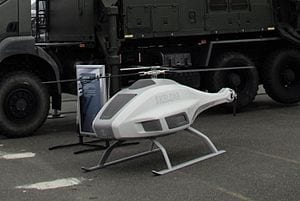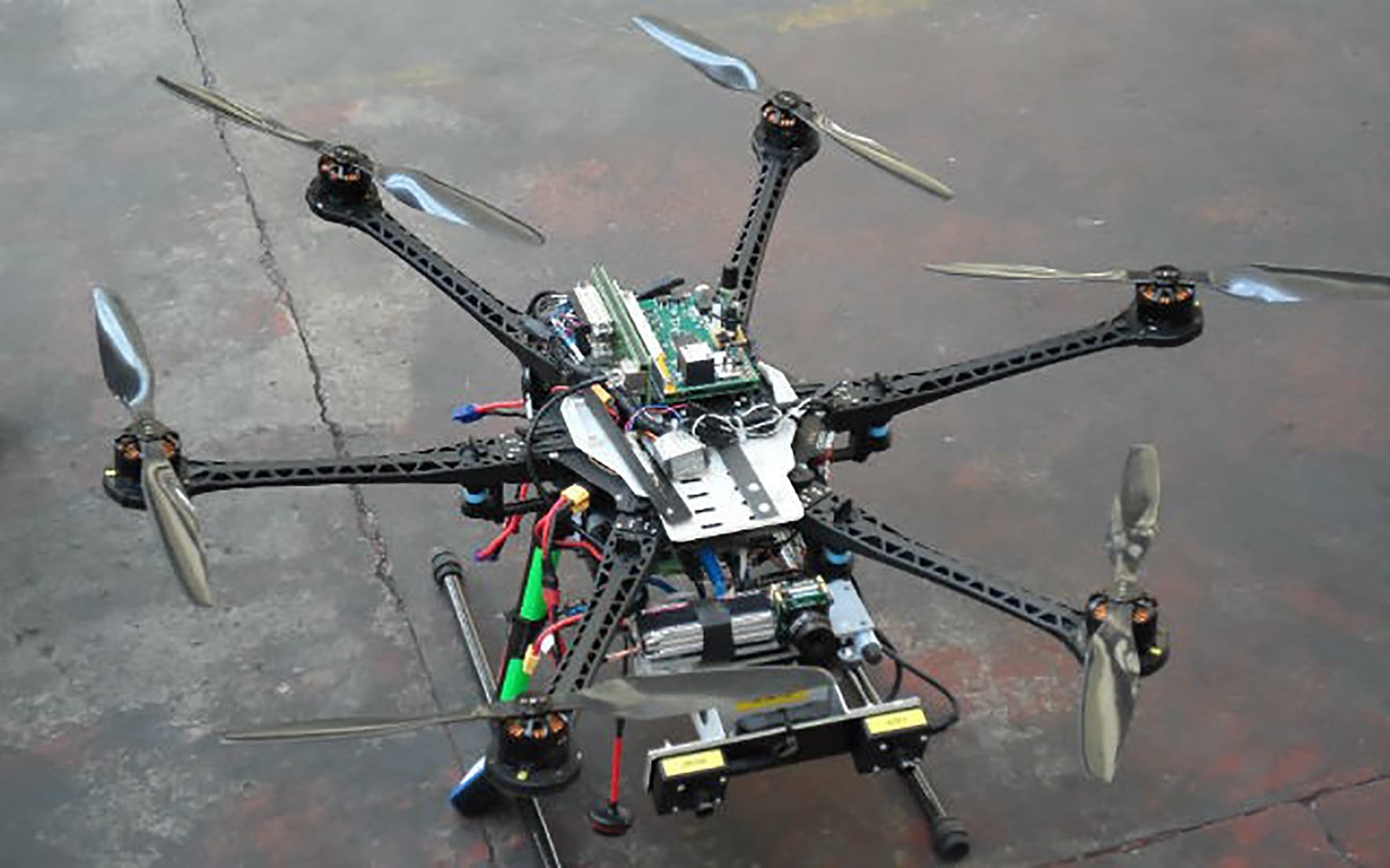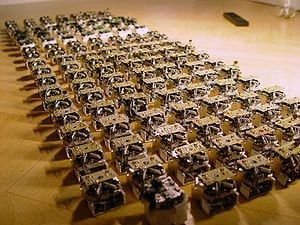
Drones come in a variety of shapes, sizes and capabilities that could greatly improve surveillance for law enforcement and public-safety purposes, whether it’s monitoring forest fires or providing reconnaissance for search-and-rescue operations.
This technological diversity has served the U.S. military well, but it has a dark side in threats to personal privacy—and makes drones difficult to regulate.
In a subcommittee hearing that could play a crucial role in shaping drone policy—especially given that the technology is so new that current case law provides little guidance—legislators and legal experts gathered on Friday in Washington, D.C., to hash through the matter. They found a lot to disagree about, including whether existing U.S. laws—including the Fourth Amendment—are sufficient to protect privacy, or, assuming more laws are needed, whether the right frameworks should center on types of technologies or types of drone missions.
Congress has given the Federal Aviation Administration until 2015 to come up with rules governing domestic drone use. Fresh thinking is needed, as Scientific American noted in a recent editorial.
The overriding question is the impact of drone use on privacy. Although the U.S. Supreme Court has yet to hear a case specifically involving drone use, plenty of laws already on the books as well as legal precedents can guide drone use, John Villasenor, a nonresident senior fellow at Brookings Institution, said during Friday’s House Judiciary Subcommittee on Crime, Terrorism, Homeland Security, and Investigations hearing. The Fourth Amendment, for example, protects U.S. residents against unreasonable searches and seizures and requires probable cause for a court to issue a search warrant specific to a given location. Any new laws must consider the legality of a particular drone’s mission rather than the specific technology in use, he added.
Given the speed of technological change, it’s tempting for lawmakers to create frameworks that regulate the use of certain equipment, such as infrared cameras or systems that can keep drones in the air for days at a time without needing to refuel. But doing so would miss the point, said, Gregory McNeal, associate professor at Pepperdine University School of Law. It might be more effective for Congress to craft simple surveillance legislation, not specific to drones, that addresses the duration of a surveillance operation, as opposed to the platform used to do the surveillance. As an aid toward tracking correct usage, Congress could mandate that agencies employing drones catalog and publicly reveal their operations—where, when, drone type and purpose of surveillance, for example.
The American Civil Liberties Union disagreed that existing laws can manage drone use, explaining that potential privacy incursions can’t be compared with other methods of surveillance, particularly when as insect-sized unmanned aerial vehicles (UAVs) could someday act, literally, as a fly on the wall.
The Latest Bing News on:
Drone policy
- Drones and AI are rewriting the rulebook on naval warfare — with uncertain consequenceson May 9, 2024 at 5:00 am
Named after their leader within Ukraine's defence intelligence agency — a man who goes by the nom de guerre Call Sign 13 — this unit of maritime drone operators has destroyed or damaged more than half ...
- Ukraine updates: Drones hit Belgorod, Krasnodar in Russiaon May 9, 2024 at 12:23 am
Russia reported drone attacks over Belgorod and Krasnodar, with the latter causing fuel depot fire. And South Korea's President Yoon Suk Yeol said the country would seek both strong ties with Ukraine ...
- US Drone Warfare Faces Questions of Legitimacy, Study of Military Chaplains Showson May 8, 2024 at 10:49 am
The American public tends not to question military action it perceives as rightful, and U.S. policymakers often reference the legitimacy of U.S. drone strikes.
- Drones, fees or bans?: Scenic Tokyo town faces dilemma over BBQ-borne trashon May 8, 2024 at 1:59 am
This town in the mountains of western Tokyo is known as a scenic spot on the upper reaches of the Tama River, but with tourism comes ...
- How Missouri Drone Laws Restrict Flights, Recordingon May 7, 2024 at 1:15 pm
Generally, only three types of locations are statewide no-fly zones for the aerial devices. And, while the Show Me State has laws on recording people without their consent in private spaces, they ...
- Michigan Supreme Court rules against couple in dispute over privacy, drone photos of their landon May 6, 2024 at 9:53 am
The Michigan Supreme Court has ruled in favor of a local government in a dispute over sending a drone to take pictures of a salvage yard without permission.
- Can a neighbor film you with a drone camera? Can the police? What Missouri laws sayon May 5, 2024 at 4:00 am
Missouri’s network of privacy and drone operating laws leave some residents vulnerable to being recorded without their knowledge.
- Armies need their own drone air force flown by specialist soldiers, study sayson May 4, 2024 at 2:00 am
The air war over Ukraine has become a cat-and-mouse game where drones must constantly evolve to survive.
- ‘Best ending possible’: McAlester drone company finds missing man who is blind aliveon May 3, 2024 at 3:23 pm
A man who is blind went missing for more than 24 hours, but thankfully the Oklahoma Drone Recovery Company was able to track him down and reunite him with his family.
- Colorado sheriff’s office testing out potential drone 911 responseon May 2, 2024 at 11:43 am
The Arapahoe County Sheriff's Office is testing out the possibility of using drones to respond to 911 calls. ARAPAHOE COUNTY, Colo. — The Arapahoe County Sheriff’s Office is in the early stages of ...
The Latest Google Headlines on:
Drone policy
[google_news title=”” keyword=”drone policy” num_posts=”10″ blurb_length=”0″ show_thumb=”left”]
The Latest Bing News on:
Surveillance legislation
- Texas House agenda prioritizes school choice, border security, property taxes for 2025on May 9, 2024 at 5:04 am
A look at a few policy areas House lawmakers will consider ahead of 2025 - from housing insecurity and mental health to groundwater infrastructure and border security.
- Johnston is getting Flock license plate surveillance cameras. Here's what they do:on May 9, 2024 at 4:05 am
Johnston is getting Flock license plate surveillance cameras. Here's what they do: ...
- CT lawmakers pass election security bill in final hours of 2024 sessionon May 9, 2024 at 2:40 am
Connecticut lawmakers scramble to pass hundreds of bills before the 2024 General Assembly session ends on Wednesday.
- 'Granny cam' bill allowing cameras in nursing home rooms one step closer to law in RI.on May 9, 2024 at 2:29 am
S 2263, sponsored by Sen. Dawn Euer, D-Newport, would allow family members to install their own cameras in loved one's rooms and remotely monitor their treatment. The resident would have to consent, ...
- How tech can help law firms enhance efficiency, securityon May 9, 2024 at 1:18 am
In a world where US attorneys argued for more than three years over a comma in a contract, the pressure on legal practices to account for every piece of information and every minute of their time over ...
- Small, solo law firms grapple with data security, costson May 8, 2024 at 8:42 pm
One of the big challenges with data security is keeping in compliance with t Rules of Professional Conduct, which deal with confidentiality of information in the attorney-client relationship.
- Kemp signs new voter challenge and election security lawson May 7, 2024 at 1:52 pm
Georgia Gov. Brian Kemp signed election-year changes into law Tuesday that empower voter eligibility challenges, require more audits and tighten ballot security ahead of this year’s contentious ...
- Social Security will not be able to pay full benefits in 2035 if Congress doesn’t act. Medicare has a little more timeon May 6, 2024 at 3:51 pm
Social Security and Medicare will not be able to fully pay benefits in just over a decade if lawmakers don’t act to address the pending shortfalls, according to reports released Monday by the ...
- Dignity Act Expected to Save Social Security, Medicare, Healthcareon May 5, 2024 at 6:45 am
A new report indicates that the Dignity Act could save social security, medicare, and healthcare at a time when all three are languishing.
- Menstrual surveillance? Trump wouldn’t stop states' extreme abortion laws from hurting women | Editorialon May 5, 2024 at 4:00 am
GOP presidential candidate Donald Trump would allow states such as Texas to leave the most extreme abortion bans in place, even if a woman's health is at risk.
The Latest Google Headlines on:
Surveillance legislation
[google_news title=”” keyword=”surveillance legislation” num_posts=”10″ blurb_length=”0″ show_thumb=”left”]











